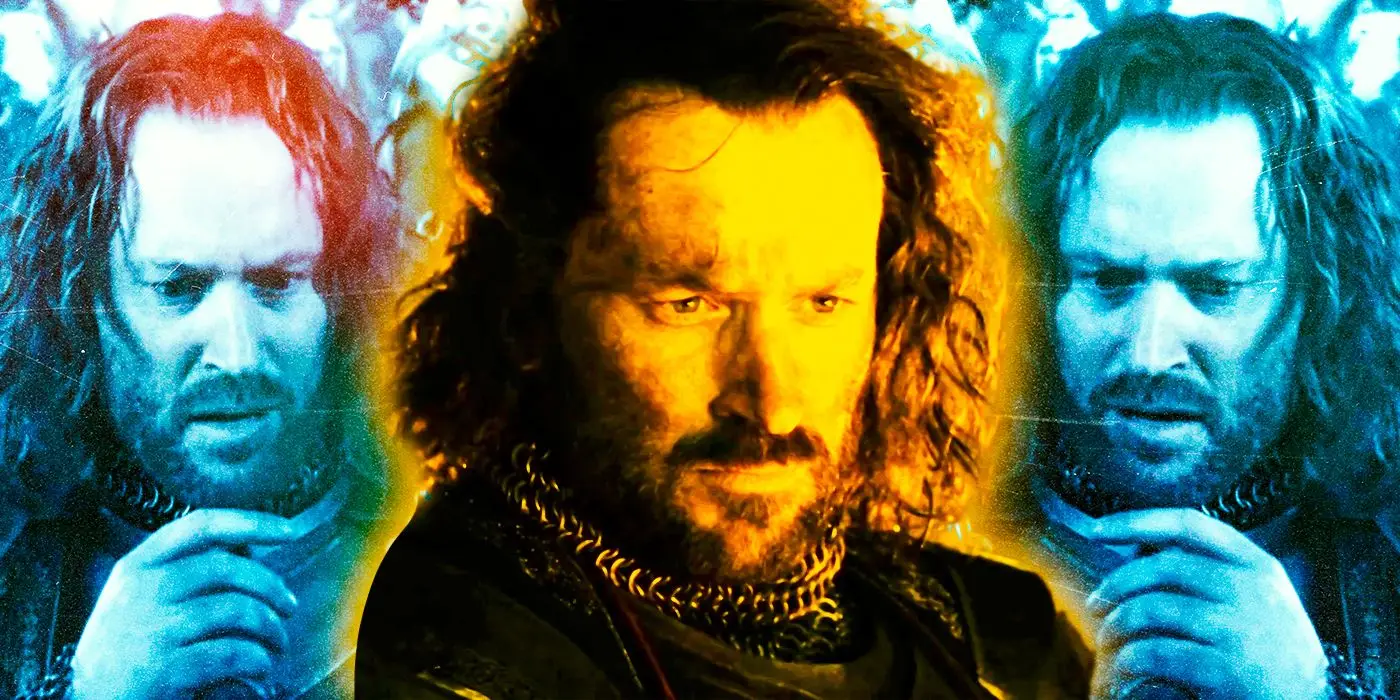Examining Isildur’s Critical Role in The Lord of the Rings Saga
By August Tales
The legacy of Isildur looms large over the Lord of the Rings universe, despite his brief appearance in Peter Jackson’s film trilogy. Although his screen time was limited, his actions reverberate throughout Middle-earth’s history. With Amazon’s Rings of Power delving deeper into his backstory, Isildur’s significance is becoming even more pronounced.
Had Isildur destroyed the One Ring at Mount Doom instead of succumbing to its power, the fate of Middle-earth would have been vastly different. However, as J.R.R. Tolkien revealed in his Unfinished Tales, Isildur never had that chance. Despite his noble lineage and initial good intentions, history remembers him as the king whose decisions led to the division of kingdoms and Sauron’s eventual return.
Isildur’s Númenorean Heritage
Isildur hailed from Númenor, a mighty island nation gifted with extraordinary longevity by the Valar, rulers of Arda. The Númenoreans, blessed with lifespans reaching 500 years, enjoyed a peaceful and prosperous existence until Sauron’s insidious influence tore their world apart.
In The Rings of Power, much of the narrative focuses on Isildur’s early life, including his strained relationship with his father Elendil and a mysteriously absent brother. Although Amazon has stayed faithful to Tolkien’s source material, Isildur’s character remains enigmatic, hinting at more complexities to be revealed in future episodes.
The Tragic Fall at Gladden Fields
Isildur’s life took a disastrous turn at the Battle of Gladden Fields, where his small army of 200 men was ambushed by an overwhelming Orc force. After defeating Sauron, Isildur’s triumph was short-lived. During the ambush, he attempted to use the One Ring’s power to escape, but it ultimately betrayed him. His death set in motion the chain of events that shaped Middle-earth’s future.
Isildur had intended to give up the Ring, fully aware of its corruptive influence. However, during the Orc attack, he relied on the Ring’s invisibility to flee. Yet the Ring abandoned him, leading to his untimely demise and loss of the One Ring, which disappeared for millennia.
Isildur’s Death and the Fate of Middle-earth
Following Isildur’s death, his kingdom fractured, marking the decline of Númenorean rule. His descendants, the Dúnedain, became wandering Rangers of the North. Among them was Aragorn, who played a pivotal role in The Lord of the Rings saga.
The One Ring remained lost for over 2,000 years until Gollum discovered it in the dark caves of the Misty Mountains. From there, its journey through Bilbo Baggins and later Frodo set the epic events of The Lord of the Rings into motion. Isildur’s fateful decision, though made in weakness, indirectly shaped the destiny of Middle-earth.
Aragorn’s Burden: Living in Isildur’s Shadow
Isildur’s failure to destroy the One Ring cast a long shadow over his descendants, especially Aragorn. Aragorn’s fear of repeating Isildur’s mistake made him reluctant to accept his royal lineage. But as Sauron’s power rose again, Aragorn had no choice but to embrace his destiny as the true heir of Gondor.
While Peter Jackson’s films portray Aragorn grappling with self-doubt, Tolkien’s novels present him as a confident hero from the outset. Despite these differences, both versions highlight Aragorn’s eventual rise above Isildur’s legacy, proving that he is worthy of the crown.
With The Lord of the Rings trilogy and The Rings of Power available on streaming platforms, fans continue to explore the deep lore of Middle-earth, from the deeds of ancient kings to the triumphs of unlikely heroes.
Read this article and more at August Tales Comics—your go-to site for trade paperback exchanges and comic book news! Trade. Read. Repeat.
#comics #comicbooks #graphicnovel #graphicnovels #augusttales
Image credit: www.cbr.com







